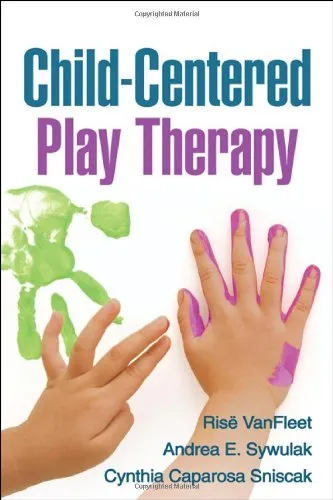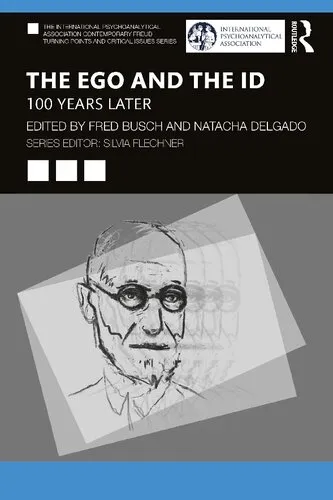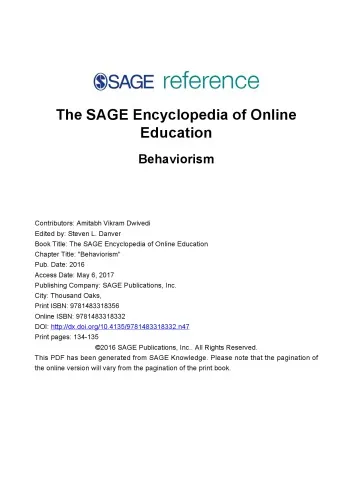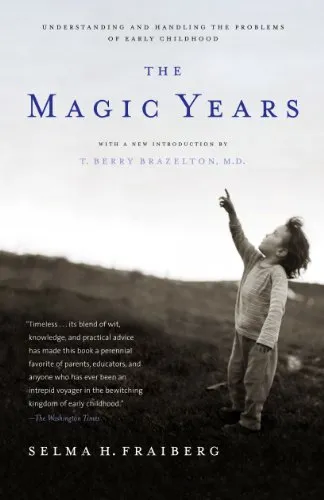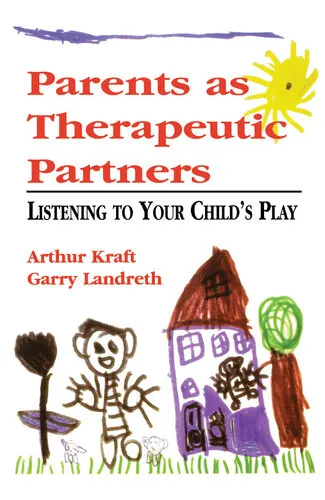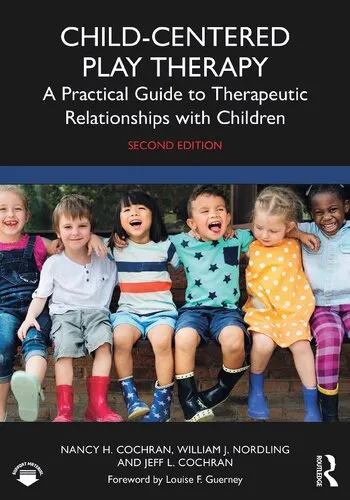Child-Centered Play Therapy
4.7
Reviews from our users

You Can Ask your questions from this book's AI after Login
Each download or ask from book AI costs 2 points. To earn more free points, please visit the Points Guide Page and complete some valuable actions.Related Refrences:
Introduction to "Child-Centered Play Therapy"
"Child-Centered Play Therapy" by Rise VanFleet, Andrea E. Sywulak, and Cynthia Caparosa Sniscak is a seminal work in the field of play therapy, providing readers with an in-depth understanding of how to offer therapeutic support to children using play as a medium. Written by leading experts, this book emphasizes the profound role child-centered play therapy (CCPT) plays in fostering emotional growth, self-awareness, and healing. With its clear, evidence-based framework, this book is essential for therapists, counselors, and other practitioners aiming to empower children in a compassionate and non-directive setting.
Detailed Summary of the Book
The book is designed to guide practitioners through the principles, process, and techniques of child-centered play therapy, a therapeutic model rooted in the belief that children possess the innate capacity for growth and self-healing. The authors provide a practical framework for understanding children’s emotional worlds while equipping therapists with tools to create a safe and trusting environment.
The book begins by exploring the theoretical foundations of CCPT, including its roots in person-centered psychology as pioneered by Carl Rogers and Virginia Axline. It then transitions into practical applications, explaining therapeutic dynamics, key skills for practitioners, and strategies for connecting with children through play. The authors also place significant emphasis on the importance of empathy, respect, and a non-directive approach in allowing children to lead the therapeutic process.
Special attention is given to common challenges therapists might encounter, guidance on setting up play therapy sessions, and handling complex cases. The book also includes vivid case studies, detailed session dialogues, and examples of how children use play to process emotions, build resilience, and address trauma—all of which bring the concepts to life for readers.
Key Takeaways
- The child is the most important agent in their own healing, and therapy should revolve around their needs and experiences.
- Play is a child’s natural way of communicating, and through play, children can explore and process their emotions safely.
- Therapists must cultivate core qualities such as empathy, genuineness, and unconditional positive regard to create a trusting therapeutic relationship.
- The non-directive approach of CCPT allows children to take the lead, fostering a sense of control, autonomy, and self-confidence.
- CCPT can be highly effective in addressing a wide range of emotional and behavioral issues, including grief, anxiety, trauma, and social difficulties.
Famous Quotes from the Book
“Children need to feel truly seen and heard. Play therapy offers them a unique space to achieve that, using their natural language of play.”
“When we follow the child’s lead, we open the door to their inner world and facilitate the healing process.”
“Play therapy is not about fixing; it is about creating a loving space for children to find their own strength and solutions.”
Why This Book Matters
"Child-Centered Play Therapy" stands out as an essential resource for practitioners, educators, and anyone working with children. It provides clear guidance on how to engage with children in a respectful and therapeutic manner while honoring their autonomy. By offering practical insights, case examples, and step-by-step instructions, the book bridges the gap between theory and practice, making it accessible even to those new to the concept of play therapy.
In addition to its academic rigor, this book matters because it advocates for a child-first approach to mental health and well-being. It addresses not only how to help children but also why it is so important to recognize their inherent wisdom and capacity for growth. This perspective is increasingly vital in today’s world, where children face unprecedented challenges, such as societal pressures, family disruptions, and significant mental health concerns.
Ultimately, "Child-Centered Play Therapy" serves as a beacon of hope, reminding us of the transformative power of empathy, connection, and play to heal and empower children in need.
Free Direct Download
You Can Download this book after Login
Accessing books through legal platforms and public libraries not only supports the rights of authors and publishers but also contributes to the sustainability of reading culture. Before downloading, please take a moment to consider these options.
Find this book on other platforms:
WorldCat helps you find books in libraries worldwide.
See ratings, reviews, and discussions on Goodreads.
Find and buy rare or used books on AbeBooks.
1582
بازدید4.7
امتیاز0
نظر98%
رضایتReviews:
4.7
Based on 0 users review
Questions & Answers
Ask questions about this book or help others by answering
No questions yet. Be the first to ask!
